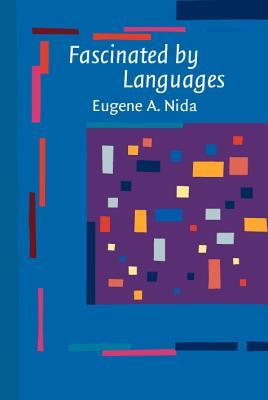

 |

|

The average rating for Uchumataqu: The Lost Language of the Urus of Bolivia. A Grammatical Description of the Langu... based on 2 reviews is 4 stars.
Review # 1 was written on 2015-09-09 00:00:00 Diana Odasso Diana OdassoEugene A. Nida had a productive career as a consultant for missionary teams translating the Bible into the languages of the world. However, he also had a PhD in linguistics and considered himself mainly a linguist. Plus, the insights he gained about how to render Hebrew or Greek into vastly different languages of vastly different cultures and ecologies had some repercussions for general linguistic theory and translation studies. This gained him enormous respect among the general scholarly community (just look at the names in the table of contents of his Festschrift). Born in 1914, Nida lived to the good old age of 96, and his memoirs Fascinated By Languages were published by John Benjamins in 2003, a little under a decade before his death. One notices right away the lack of any editing. Nida’s thoughts are gathered haphazardly, there often isn't any connection between one paragraph and the next. It can be frustrating to read through a series of non-sequiturs, and the book does unfortunately feel like the rambling account of an elderly man. Also, sometimes Nida gets some facts wrong because he seems to be recalling languages that he hadn't used for decades (such as a mistake about how the Japanese writing system works), and there are a great deal of typos here. If only the publisher can have intervened and polished the manuscript a bit. That said, there is a great deal of enjoyable trivia here. The book is essentially divided into two main parts: on one hand, we have Nida’s scattered anecdotes of his travels to lecture and help Bible translation teams in some 90 countries around the world, while on the other hand he discusses various aspects of the Old and New Testaments that have proven challenging for translators over his career. Even though Nida is drawing his examples of translation difficulties from the Bible, they will mainly interest linguists of any or no faith. In fact, even when speaking about how to translate Christian doctrine, Nida stays very detached from the religion. He gives off no sense of personal religious zeal, which must have helped a lot in allowing him to interact with academia without offending. It is in fact difficult to get any concrete idea from this book of what religious dogma Nida exactly held, though his relationship with Roman Catholic translators seems to have been a little rocky. (Online references tell me he was a Baptist.) Nida ends the book with speaking a little bit of his personal life since retirement, including how he met his second wife, the Spanish translator María Elena Fernandez-Miranda, and moved around Europe in his old age more than he expected to. (His wife ultimately wrote Mi vida con Eugene Nida, her own book looking back at their relationship). |
Review # 2 was written on 2016-10-09 00:00:00 Jonathn Poirier Jonathn PoirierI'd re-title this book to: How to Study a Foreign Language because nowhere in the book are there actual tips on how to speak a second (third, fourth, fifth) language more naturally. It's more like a list of pointers about creating a plan to study a language. And, after nearly a year of immersively learning another language, I find this book unhelpful - like I should have skimmed this prior to becoming an ex-pat or perhaps not read it at all. |
CAN'T FIND WHAT YOU'RE LOOKING FOR? CLICK HERE!!!